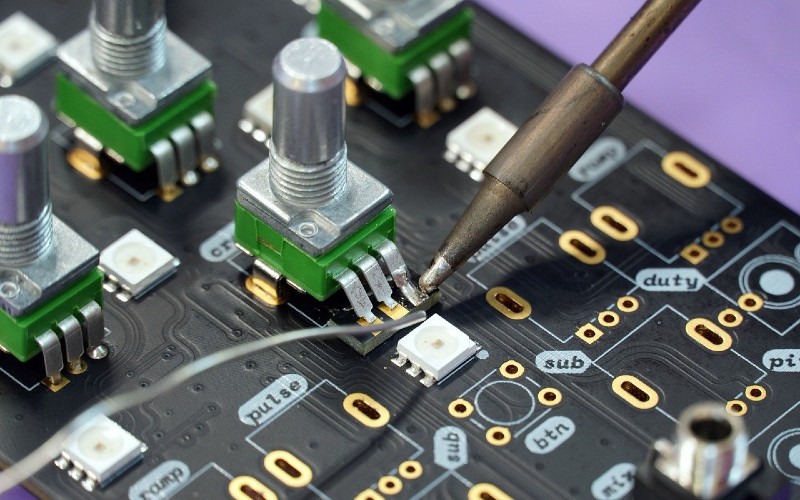The electronics industry is a driving force behind today’s tech innovations, from smartphones to smart homes. As the world becomes more digital, the demand for skilled electronics professionals is booming. Whether you’re fresh out of school or considering a career change, stepping into the electronics field can be both exciting and rewarding.
This guide will walk you through the key steps to launching a successful career in electronics, from acquiring essential skills and education to gaining hands-on experience and navigating the job market.
Understanding the Electronics Industry
Before diving into a career in electronics, it’s crucial to understand the industry and its vast scope. Electronics play a pivotal role in numerous fields, including consumer electronics (think smartphones and laptops), industrial electronics (automation systems and robotics), telecommunications.
For those looking to enter the field, it’s important to identify which area of electronics excites you the most. Whether you’re fascinated by designing cutting-edge consumer gadgets, developing complex industrial systems, or contributing to telecommunications infrastructure, there are numerous pathways to explore. Understanding where your interests align within the industry will help you focus your learning and career development efforts.
Essential Skills and Education
To start a career in electronics, building a solid foundation of skills and education is key. Employers typically look for candidates with strong technical abilities, including circuit design, programming, and troubleshooting. A good grasp of mathematics and physics is also essential, as these subjects underpin many concepts in electronics.
Formal education often begins with a degree in electronics engineering, electrical engineering, or a related field. However, if you’re looking for a quicker route or additional credentials, consider pursuing certifications or specialised courses that focus on specific areas like microelectronics, embedded systems, or digital signal processing.
For those looking to upskill or transition into electronics, online platforms offer a variety of courses that cater to all levels. If you’re in the UK, visiting an IPC training course provider, such as Advanced Rework Technology, is a great way to ensure you gain industry-recognised qualifications. IPC standards are widely respected in the electronics industry, especially in areas like PCB assembly and quality assurance. Completing a course through a provider not only enhances your skills but also makes you a more attractive candidate to potential employers.
Building Experience and Gaining Exposure
Gaining hands-on experience is vital for launching your career in electronics. Internships, apprenticeships, and entry-level positions offer practical exposure, helping you apply your knowledge in real-world settings and develop the skills that employers look for.
If formal work experience is hard to come by, consider working on personal projects like building circuits, repairing electronics, or designing small gadgets. These projects not only sharpen your skills but also help create a portfolio that demonstrates your abilities to potential employers.
Networking is equally important. Attend industry events, trade shows, or webinars to meet professionals and stay updated on the latest trends. Engaging in online communities and forums focused on electronics can also help you connect with others in the field, find mentors, and discover job opportunities.
Navigating the Job Market
Once you’ve built a solid foundation of skills and gained some practical experience, it’s time to navigate the job market. Start by crafting a standout CV that highlights your technical skills, relevant projects, and any certifications you’ve earned. A well-organised portfolio showcasing your hands-on work can make a strong impression on potential employers.
When searching for jobs, leverage a variety of platforms. Job boards, company websites, and LinkedIn are great places to start. Don’t overlook the power of networking—many job opportunities in electronics are filled through personal connections and industry referrals.
Understanding what employers are looking for is crucial. In the electronics industry, companies often seek candidates who are not only technically skilled but also adaptable and eager to continue learning. Tailor your applications to highlight these qualities, and be prepared to discuss how your background aligns with the specific needs of the role.
Finally, consider roles that offer growth potential, even if they are not your ideal job at first. Entry-level positions, internships, or even freelance work can be valuable stepping stones, providing the experience and industry contacts that can propel your career forward.
Continuous Learning and Career Advancement
In the rapidly evolving electronics industry, continuous learning is essential to stay competitive. Technology is always advancing, and keeping your skills up-to-date will help you remain relevant and open up opportunities for career advancement.
Consider pursuing advanced certifications, attending workshops, or enrolling in specialised courses to deepen your expertise. Staying informed about the latest industry trends and technological advancements is crucial. Following industry news, joining professional organisations, and participating in relevant online forums can keep you in the loop.
As you gain more experience, you might also consider specialising in a particular area of electronics, such as embedded systems, robotics, or telecommunications. Specialisation can lead to more advanced roles and higher earning potential.
Finally, always be on the lookout for opportunities to advance within your current role. Whether it’s taking on more responsibility, leading projects, or mentoring others, actively seeking growth within your position can lead to promotions and new career opportunities.


